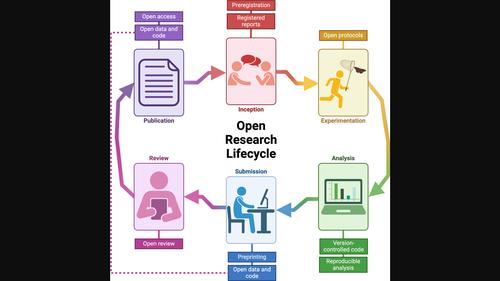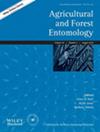The case for open research in entomology: Reducing harm, refining reproducibility and advancing insect science
IF 1.8
3区 农林科学
Q2 ENTOMOLOGY
引用次数: 0
Abstract
Open research is an increasingly developed and crucial framework for the advancement of science and has seen successful adoption across a broad range of disciplines. Entomology has, however, been slow to adopt these practices compared to many adjacent fields despite ethical and practical imperatives to do so. The grand challenges facing entomology in the 21st century require the synthesis of evidence at global scales, necessitating open sharing of data and research at a pace and scale incompatible with the slow adoption of open research practices. Open science also plays a vital role in fostering trust in research and maximizing use of research outputs, which is ethically crucial for reducing harms to insects. We outline these imperatives and how open research practices can enhance entomological research across a range of contexts. We also highlight the holistic nature of open science across the full research lifecycle through several specific examples of open research practices, which can be adopted easily by individual entomologists. We do, however, argue that the responsibility of promoting, integrating and encouraging open research is most crucially held by publishers, including scholarly societies, which have leveraged widespread adoption in adjacent fields. Entomology must advance quickly to become a leading discipline in the open research transition.

昆虫学开放研究的理由:减少危害,提高可重复性,推动昆虫科学发展
开放式研究是科学进步的一个日益完善和重要的框架,已被广泛的学科成功采用。昆虫学在21世纪面临的巨大挑战要求在全球范围内综合证据,这就需要以与开放研究实践采用缓慢不相称的速度和规模开放共享数据和研究。我们概述了这些必要条件以及开放式研究实践如何在各种情况下加强昆虫学研究。我们还通过几个开放式研究实践的具体实例,强调了开放式科学在整个研究生命周期中的整体性,昆虫学家个人可以很容易地采用这些实践。不过,我们认为,促进、整合和鼓励开放式研究的责任,最关键的是要由出版商(包括学术团体)来承担,因为他们已经在邻近领域中广泛采用了开放式研究。昆虫学必须快速发展,成为开放研究转型中的领先学科。
本文章由计算机程序翻译,如有差异,请以英文原文为准。
求助全文
约1分钟内获得全文
求助全文
来源期刊

Agricultural and Forest Entomology
农林科学-昆虫学
CiteScore
3.60
自引率
6.20%
发文量
66
审稿时长
>24 weeks
期刊介绍:
Agricultural and Forest Entomology provides a multi-disciplinary and international forum in which researchers can present their work on all aspects of agricultural and forest entomology to other researchers, policy makers and professionals.
The Journal welcomes primary research papers, reviews and short communications on entomological research relevant to the control of insect and other arthropod pests. We invite high quality original research papers on the biology, population dynamics, impact and management of pests of the full range of forest, agricultural and horticultural crops.
 求助内容:
求助内容: 应助结果提醒方式:
应助结果提醒方式:


